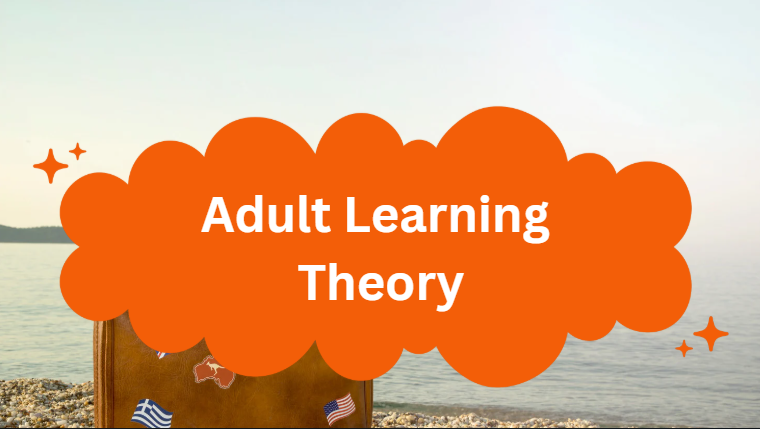Understanding how adults learn is important for teachers, trainers, and professionals who design training programs. Adult Learning Theory explains how adults gain knowledge and skills differently from children. This theory helps make learning more effective, engaging, and practical.
What Is Adult Learning Theory?
Adult Learning Theory is a concept that focuses on how adults think, learn, and apply knowledge. It was first explained by Malcolm Knowles, who introduced the idea of andragogy — the art and science of helping adults learn.
According to Knowles, adults are self-directed learners. They prefer learning that connects to their experiences and helps them solve real-life problems.
Main Principles of Adult Learning Theory
Malcolm Knowles identified six key principles that explain how adults learn best:
1. Need to Know
Adults want to understand why they need to learn something before they invest their time and energy. If learners see clear benefits, they become more motivated.
2. Learner’s Self-Concept
Adults like to be responsible for their own learning. They want control over what, how, and when they learn. Teachers should act more as guides than directors.
3. Prior Experience
Adults bring years of experience to the learning process. These experiences can help them connect new ideas to things they already know. Using examples and discussions makes learning more meaningful.
4. Readiness to Learn
Adults are most ready to learn when they see a direct link between the lesson and their current life or job situation.
5. Orientation to Learning
Adults prefer learning that is problem-centered rather than content-centered. They want practical lessons that solve real challenges.
6. Motivation to Learn
While children often learn because of grades or rewards, adults are usually motivated by internal goals — like improving skills, career growth, or personal satisfaction.
Why Adult Learning Theory Matters
Understanding this theory is very useful in education, training, and professional development. Here’s why:
- Improves engagement: Lessons become more interesting when learners relate them to their experiences.
- Boosts retention: Adults remember things better when learning is relevant to their lives.
- Encourages active learning: Adults prefer group discussions, projects, and real-life examples over passive listening.
- Supports lifelong learning: It motivates people to keep learning even after formal education.
Different Models of Adult Learning Theory
Over time, several experts expanded on Knowles’ ideas. Here are a few popular models:
1. Transformative Learning (Jack Mezirow)
This model says that adults learn deeply when they reflect on past experiences and change their perspectives. Learning is more than gaining knowledge — it’s about transforming how we think.
2. Experiential Learning (David Kolb)
Kolb’s model focuses on learning through experience. Adults learn by doing, reflecting on what happened, and then applying the lessons to new situations.
3. Self-Directed Learning (Tough and Knowles)
In this model, learners take full control of their learning journey. They choose goals, resources, and evaluation methods. It promotes independence and confidence.
4. Situated Learning (Lave and Wenger)
This theory explains that learning happens best in real-life contexts. Adults learn better by observing and participating in communities or workplaces.
How to Apply Adult Learning Theory
Teachers, trainers, and leaders can make learning more effective by following these tips:
1. Make Learning Relevant
Connect lessons to real-life problems, job situations, or personal goals.
2. Encourage Participation
Use discussions, role-plays, or group projects instead of lectures.
3. Respect Learners’ Experience
Allow learners to share their stories and ideas. Use their experiences as valuable resources.
4. Provide Flexibility
Give adults control over their learning pace, style, or content when possible.
5. Focus on Problem-Solving
Design lessons around practical problems instead of just giving information.
6. Offer Feedback
Constructive feedback helps adults track their progress and stay motivated.
Challenges in Adult Learning
Even though adult learning can be rewarding, it has challenges:
- Time limitations: Many adults juggle jobs and family responsibilities.
- Fear of failure: Some may lack confidence, especially after being away from school for years.
- Technology barriers: Online learning may be difficult for those not comfortable with digital tools.
- Motivation issues: Without clear goals, some adults lose interest quickly.
Trainers and educators must understand these challenges and create supportive environments for adult learners.
Benefits of Adult Learning
Learning as an adult brings many advantages:
- Builds new career opportunities
- Improves problem-solving and decision-making skills
- Increases confidence and independence
- Promotes lifelong learning and personal growth
Adult learning empowers people to adapt to change and remain competitive in a fast-moving world.
FAQs
1. What is the main idea of Adult Learning Theory?
The main idea is that adults learn best when lessons are practical, relevant, and connected to their life experiences.
2. Who created Adult Learning Theory?
Malcolm Knowles developed the theory and introduced the concept of andragogy, focusing on adult learners’ unique needs.
3. What are the 6 principles of adult learning?
They include the need to know, self-concept, prior experience, readiness to learn, orientation to learning, and motivation to learn.
4. How can teachers use this theory in classrooms?
Teachers can make lessons interactive, encourage discussions, use case studies, and relate topics to real-world examples.
5. Why is Adult Learning Theory important today?
In modern times, continuous learning is essential. This theory helps design training programs that truly engage adult learners.
Conclusion
Adult Learning Theory gives deep insight into how grown-ups learn and apply knowledge. By understanding and using this theory, educators can make training programs more effective, enjoyable, and relevant.


